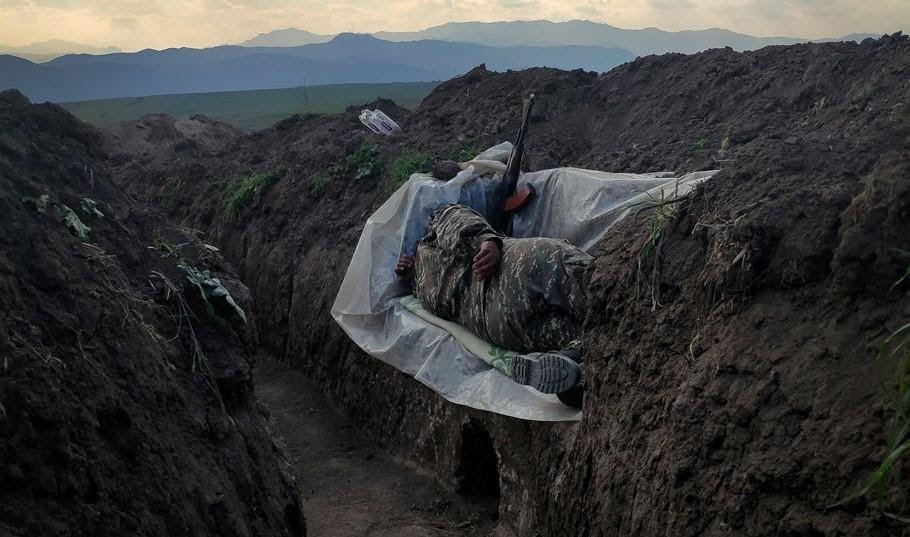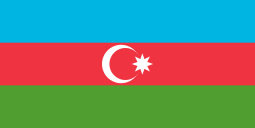
Notizie Geopolitiche: The Reconstruction Of Karabakh, 300 Days After The Tripartite Declaration
14 September 2021
By Dariush Rahiminia
Source: Notizie Geopolitiche (İtalia), 12/09/2021: The region of Karabakh (Qarabağ in Azerbaijani transliteration) is sadly known for the conflict that broke out due to the invasion of Armenia, which also included the occupation of Eastern Zangezur (together with the districts of Kalbajar, Lachin, Zangilan, Gubadli and Jabrayil ), from the 1990s, and lasted until November 9, 2020, when the army of the Republic of Azerbaijan, after a short but bloody blitzkrieg, finally liberated its territories illegally occupied by Armenia for about 30 years. On the night between 9 and 10 November 2020, the "Tripartite Declaration" signed by Azerbaijan, Armenia and Russia led to the cessation of hostilities and, consequently, all the liberated territories embarked on a rapid and fruitful path towards modernization, initiated by the 'Azerbaijan. With the end of the armed conflict,
As of today, September 2021, three hundred days after the aforementioned declaration, the government of Azerbaijan has presented to its people, and to the whole world, a list with the major achievements in the area, listed and described below.
More than fifteen thousand hectares in the territory of Karabakh and Eastern Zangezur have been cleared from, to date, 46,486 anti-personnel mines and other unexploded devices, underlining how one hundred and sixty Azerbaijani civilians have been injured and / or killed by the explosion after the signing of the Declaration Tripartite, including two journalists and a government official, involved in a fatal explosion while fulfilling their duty. These mines, it must be remembered, were scattered by the Armenian armed forces during the occupation and even after the cessation of hostilities, the Armenian side refused to hand over the maps of the minefields.
On 5 September 2021 Fuzuli International Airport, the first airport built in the liberated territories in just 7 months, welcomed an Airbus S340-500, the largest passenger aircraft in the fleet of the national airline Azerbaijan Airlines, which made a flight half an hour from the capital Baku to Fuzuli. On the same day, a Boeing 747-400, one of the largest cargo aircraft of the state airline Silk Way Airlines, also landed in Fuzuli, marking the first delivery of essential goods by air in the region.
This structure has become a symbol of the rapid post-war reconstruction of the liberated territories, where a large network of highways of 2, 4 and 6 courses is under construction (Ahmadbayli-Fuzuli-Shusha - called "Zafar" (Victory) - 101 km; Shukurbayli -Jabrayıl-Hadrut - 39.7 km; Xudaferin-Gubadli-Lachın-Khanlig-Gubadli - 83 km; Horadiz-Jabrayıl-Zəngilan-Agband - 124 km; Barda-Agdam - 44.5 km; Toganali-Kalbajar-Istisu - 80.7 km) and, due to the complexity of the terrain, they will be enriched by bridges and tunnels. Two other airports are also under construction in Lachin and Zangilan. In this regard, Azerbaijan Airlines holds the record for being the first major company to offer new jobs in the territories freed from the oppression of Armenia, thus providing job hope for internally displaced people who intend to rebuild their lives in Karabakh and Eastern Zanghezur. In addition, a complex railway network will soon be built, in order to economically integrate the region and facilitate trade with foreign countries and other major Azerbaijani cities, including the Azerbaijani exclave of Nachivan, as envisaged by the Tripartite Declaration.
From an urbanistic point of view, the masterplan for the city of Aghdam was approved, totally razed to the ground and known during the occupation as the "ghost city" or the "Hiroshima of the Caucasus", and they have already been restored and opened to tourists many of the historical buildings and monuments of the city of Shusha, the cultural capital of Azerbaijan, including two hotels, the “Xarı Bülbül” and the “Qarabağ”.
An important residential project was also started here and Azerbaijan has restored some traditional cultural events, such as the Xarı Bülbül Music Festival and the Vagif Poetry Days, held with great emotion and solemnity, after their performance was interrupted during the 'occupation.
A pilot modernization project called “Smart Village” was also launched for the town of Agali, in the district of Zangilan, with completion scheduled for the beginning of 2022, the concept of which will be replicated in the other liberated territories. In addition, the Ministry of Culture of the Republic of Azerbaijan has cataloged 1376 historical monuments and archaeological sites of particular interest in the liberated territories, implementing their restoration in the reconstruction of cultural institutions demolished and / or vandalized by the Armenians, i.e. libraries, museums, music schools, theaters, places of worship etc.
The government of Azerbaijan has declared the liberated territories as a green energy zone, favoring the use of clean energy, and, therefore, pushing the region and the whole country to use more and more sustainable energy sources, as evidenced by the agreements with the Ansaldo and with the British energy company BP. At the same time, a strong resumption of agricultural activities has begun in the region, planting the main crops and focusing on the breeding of bees, thus helping the natural renewal of life itself. Also worth mentioning in the smart village of Agadli is a joint Israel-Italy project for the breeding of buffaloes and the production of dairy products.
In conclusion, just three hundred days after the Tripartite Declaration, the Republic of Azerbaijan is fully committed to the modernization of the region of Karabakh and Eastern Zangezur, achieving excellent results in such a short time, which suggest further excellent developments that will benefit the socio-economic situation. of the country and will further expand the horizons towards economic and cultural exchanges with countries around the world. After 30 years of pain, desolation and systematic destruction during the occupation of Armenia, in just 300 days Azerbaijan has achieved important results in restoring life to the liberated territories, a clear demonstration of the Azerbaijani belonging to these territories.












